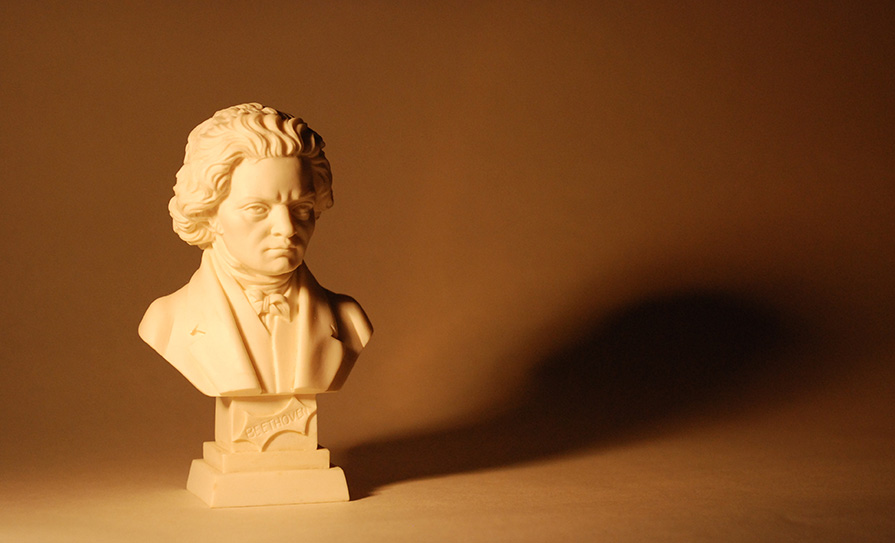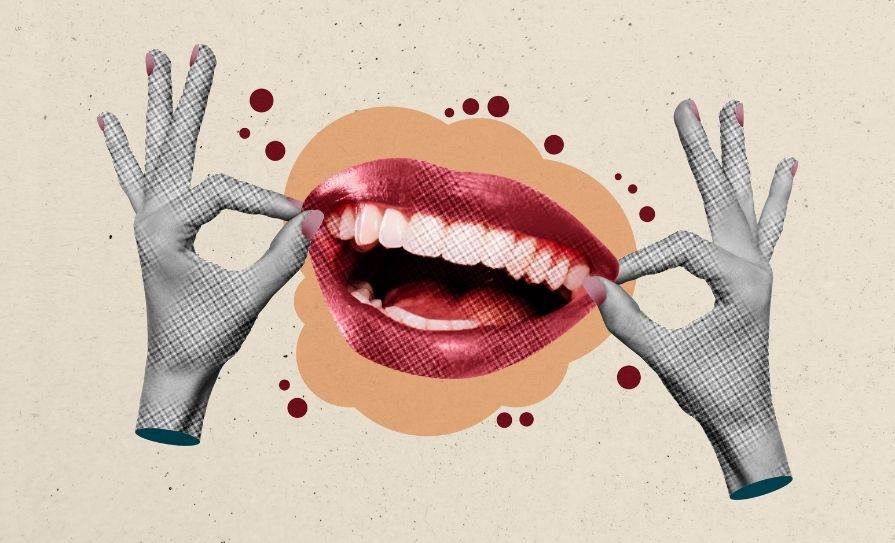Among the myriad medical mysteries, Beethoven’s deafness is one of the most discussed. Of all the senses to lose, hearing was obviously the most traumatic for him to be denied. The way he struggled to deal with his eventual profound deafness showed great resilience in the face of overwhelming difficulties, especially in the context of this maestro. His deafness also changed the nature of the music that he wrote, albeit by necessity, but more of that anon.
Beethoven was, of course, not born deaf in 1770. He first began to experience hearing loss when he was approximately 28 years old. By the age of around 45, he was completely deaf and could only communicate via written notes. By the time his Ninth Symphony premiered in 1824, Beethoven had to turn around to see if the audience were applauding. He died approximately 11 years later due to liver failure, ascites, and possible septicaemia. As well as his Ninth Symphony, while he was completely deaf he also composed Missa solemnis and the opera Fidelio.
There have been a plethora of papers, articles, and conjecture as to the medical cause of Beethoven’s hearing loss, which I will not attempt to fully encapsulate in this space. However, some of the theories as to the cause include conditions such as Paget’s disease, otosclerosis, sarcoidosis, Meniere’s disease, labyrinthitis, chronic otitis media, typhoid neuritis, and autoimmune hearing loss, perhaps related to inflammatory bowel disease, or even syphilis. If it was any of these, this would suggest a sensorineural hearing loss, rather than a conductive loss.
Indeed, in his adult years Beethoven suffered with a combination of a chronic bowel disorder resulting in diarrhoea, as well as recurrent chest complaints, catarrhal symptoms, persistent abscesses, fevers, rheumatism, and eye and skin conditions. He also had worsening tinnitus as his adult years progressed.
It was customary at the time to take a locket of the deceased person’s hair after their death, which has made modern analysis possible. The sample showed elevated levels of opium, mercury, and lead, not just in his hair, but also in fragments of his skull. It is conjectured that this toxic level had been caused by regularly and heavily drinking ‘plumbed’ (possibly lead-contaminated) wine.
As for how he coped: Musically, he did his best, but as you can imagine psychosocial support as we know it was non-existent. His hearing loss caused Beethoven to become withdrawn, anxious, and difficult to deal with. At the piano, he initially used a specially designed device called a resonance plate to augment the volume of his piano. He eventually had a particularly loud piano built for him, neither of which were of much use when total deafness overcame him.
In the latter years, not only did he still manage to compose, but he also played and conducted his work without being able to hear a single note of it.
As his hearing worsened, Beethoven’s compositions became louder, deeper, and more solemn. As his hearing deteriorated, he used a special ear trumpet to enhance his hearing, which of course became useless when he was fully deaf. During this time he would sometimes put a pencil in his mouth while at the piano, touching the other end of it to the sound board to ‘feel’ the note.
This helped him to ‘feel’ the lower-range notes. You can almost imagine him doing this whilst at his piano composing the deep and melancholic Moonlight Sonata. The higher notes were chosen using his experience and imagination only, making these compositions even more astonishing.
It’s beyond cruel irony that Beethoven lost his hearing, and the process clearly affected him emotionally and psychologically, and in profound ways. One wonders what other miracles of composition he would have produced, had fate not dealt him such a hammer blow.
We’ll finish with heart-rending words from the man himself, written in a letter to his brothers, which offer an insight as to how he must have been feeling in a world without sound. It also illustrates his feelings towards no doubt well-meaning doctors who attempted to treat him.
“For six years now I have been hopelessly afflicted, made worse by senseless physicians, from year-to-year deceived with hopes of improvement, finally compelled to face the prospect of a lasting malady (whose cure will take years or perhaps be impossible).
“It was impossible for me to say to people, ‘Speak louder, shout, for I am deaf.’ Ah, how could I possibly admit an infirmity in the one sense which ought to be more perfect in me than in others, a sense which I once possessed in the highest perfection…. For me, there can be no relaxation with my fellow men, no refined conversations, no mutual exchange of ideas. I must live almost alone, like one who has been banished.”
Beethoven, 1802, Heiligenstadt Testament













Leave a Reply
You must be logged in to post a comment.